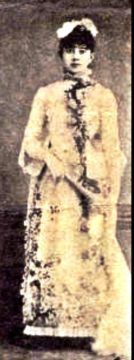Larissa Pham at The Believer:
 To apply Claude Lévi-Strauss’s structural anthropology, a crush is called a crush because it crushes you. A crush is distinct from friendship or love by dint of its intensity and sudden onset. It is marked by passionate feeling, by constant daydreaming: a crush exists in the dreamy space between fantasy and regular life. The objects of our crushes, who themselves may also be referred to as crushes, cannot be figures central to our daily lives. They appear on the periphery of our days, made romantic by their distance.
To apply Claude Lévi-Strauss’s structural anthropology, a crush is called a crush because it crushes you. A crush is distinct from friendship or love by dint of its intensity and sudden onset. It is marked by passionate feeling, by constant daydreaming: a crush exists in the dreamy space between fantasy and regular life. The objects of our crushes, who themselves may also be referred to as crushes, cannot be figures central to our daily lives. They appear on the periphery of our days, made romantic by their distance.
Crush can act as both a noun and a verb: “You are my crush”; “I am crushing on you.”
Crush can be both subject and object: “You are my crush”; “I have a crush on you.”
According to my Google searches, the first recorded instance of the use of crush in a romantic sense, to mean a person one is infatuated with, is from 1884, in the diary of Isabella Maud Rittenhouse. As in: “Wintie is weeping because her crush is gone.” By 1913, it had entered usage as a verb.
more here.
